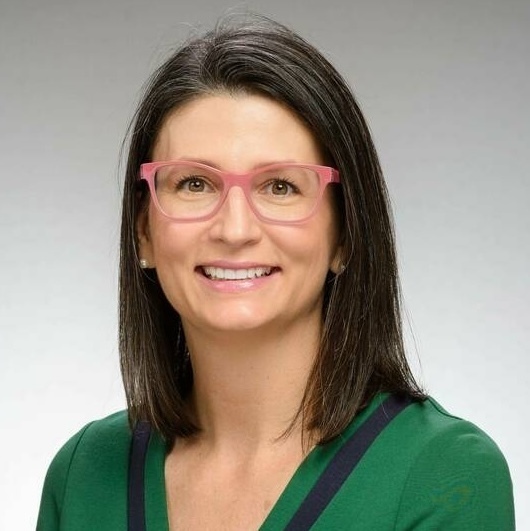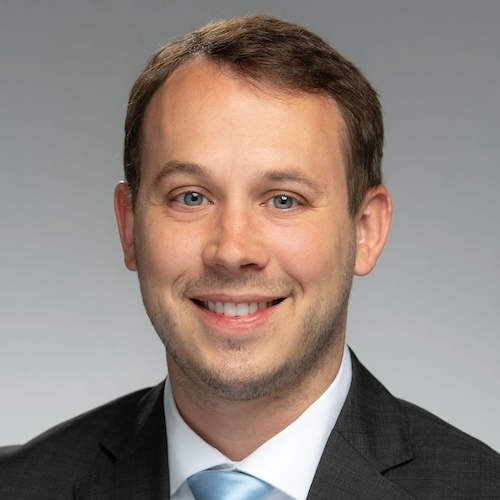Notre Dame political and computer scientists probe authoritarian regimes’ use of social media to attack democracy
Russia’s pervasive use of online propaganda and disinformation seeks to sow distrust in elections, trigger violence, and destabilize populations around the world, said University of Notre Dame political scientist Karrie Koesel.
Unsuspecting citizens — in the United States and other democratic countries — may not even recognize that they're under attack.

“Authoritarian regimes — like Russia, China, and Iran — are actively using social media platforms to spread misinformation, and this has real-world impacts,” she said.
To better understand and be able to combat such online campaigns, Koesel and an interdisciplinary research team were selected to take part in a Defense Education and Civilian University Research (DECUR) Partnership, which is part of the Department of Defense’s research arm, the Minerva Research Initiative.
A goal, Koesel said, is to understand how people and social communities are manipulated, compromised, and converted in online spaces.
“To protect democracy at home and abroad, we must understand the different ways it is being attacked,” said Koesel, an associate professor of political science and a fellow of the Nanovic Institute of European Studies, the Kellogg Institute of International Studies, the Liu Institute for Asia and Asian Studies, the Pulte Institute for Global Development, and the Institute for Educational Initiatives.
Online propaganda campaigns take various forms, she said, from spreading disinformation about the validity of U.S. elections to misrepresenting the amount of support for Russia’s invasion of Ukraine.
William Thiesen, an assistant teaching professor in the Department of Computer Science and Engineering, found that in the days leading up to Russia’s invasion of Ukraine, the number of Russian-backed activists’ posts increased by nearly 9,000% on a popular social media platform in Russia and Eastern Europe.
Related research, Koesel said, found that the Kremlin’s escalation of propaganda during that time frame significantly increased support for Russian military aggression against Ukraine.
“This helps us identify ways in which democracies are vulnerable,” she said, “and creates a pipeline from universities to policymakers so that our research has real-world impact.”
‘A picture is worth a thousand lies’
The research team, which has expertise in computational science, Russian studies, and linguistics, will identify and examine the origin, timing, techniques, and narratives of Kremlin propaganda leading up to and following the invasion of Ukraine.
The team also will conduct a case study to learn about the effects of propaganda on Russian speakers in Hungary and explore how to better forecast and mitigate the spread of false, dangerous narratives.
Hungary is an important case, Koesel said, because Prime Minister Viktor Orbán has demonstrated open support for Russia and Vladimir Putin.
“We've seen the blocking of aid to Ukraine, blocking new NATO members, and allowing Russian oligarchs to have financial dealings within Hungary,” she said. “Although Hungary is part of the European Union, it is a very pro-Russian space. Our research investigates how Kremlin narratives resonate in Russian-speaking communities there.”

The research team includes Notre Dame graduate students, as well as Tim Weninger, the Frank M. Freimann Collegiate Professor of Engineering, a leading expert on misinformation, particularly visual forms of misinformation.
“Tim brings a methodological skillset — what computer scientists often call digital forensics — to help us understand misinformation and propaganda online,” Koesel said.
Weninger has developed AI tools to sift through millions of social media images on Facebook, Instagram, X, YouTube, Telegram, and VKontakte and to identify those images that have been similarly manipulated and have the same narrative.
“We’re seeing coordinated campaigns of content," said Weninger, who is also an affiliate with the Lucy Family Institute for Data and Society, the Pulte Institute for Global Development, and the Technology Ethics Center. “If someone is trying to influence or manipulate how storytelling happens, then they can manipulate society. There’s nothing more important.”
Weninger advised social media users to be aware of their intellectual and emotional reactions to posts.
“Social media posts are meant to make you feel certain ways; they're not solely informational,” he said. “Recognize what a post or image or video is making you feel and think about how you're thinking about it. It’s called metacognition, and it’s important for understanding social media.”
The public will be able to read the findings from their project, “Kremlin Influence Operations in Online Spaces,” after it’s completed in 2026.
Koesel said this project — the first from Notre Dame to receive funding from the Minerva Research Initiative — aligns closely with the recently launched Notre Dame Democracy Initiative, an interdisciplinary research, education, and policy effort to advance solutions to sustain and strengthen global democracy.
Weninger said Notre Dame is built for this kind of research.
“It has collaborations between political scientists and computer scientists, and it has real-world impact,” he said. “This speaks to the very ethos of the place.”
Originally published by at al.nd.edu on June 13, 2024.
Latest Research
- Smarter tools for policymakers: Notre Dame researchers target urban carbon emissions, building by buildingCarbon emissions continue to increase at record levels, fueling climate instability and worsening air quality conditions for billions in cities worldwide. Yet despite global commitments to carbon neutrality, urban policymakers still struggle to implement effective mitigation strategies at the city scale. Now, researchers at Notre Dame’s School of Architecture, the College of Engineering and the Lucy Family Institute for Data & Society are working to reduce carbon emissions through advanced simulations and a novel artificial intelligence-driven tool, EcoSphere.
- Seven engineering faculty named collegiate professorsSeven faculty members in the Notre Dame College of Engineering have been named collegiate professors—a prestigious title awarded by the university and college in recognition of excellence in research, teaching and service. The designation may be conferred on faculty at the assistant, associate or…
- ‘A special challenge’: German studies scholar wins National Humanities Center fellowship for research on medieval womenFor CJ Jones, the joy of research is not the answers but the journey. And the next step on that journey is a fellowship with the National Humanities Center. …
- Notre Dame Lead Innovation Team partners with local WIC program to identify, prevent lead poisoning in childrenB.A.B.E. store “shoppers” now have something new to help their families: free lead screening kits offered by the University of Notre Dame’s Lead Innovation Team.
- Notre Dame Welcomes Ninth Cohort of Warrior-Scholars for Transformative Academic JourneyNOTRE DAME, IN – The University of Notre Dame recently concluded its ninth successful Warrior-Scholar Project (WSP) boot camp, hosting 34 dedicated Warrior-Scholars from June 21st to 28th. This intensive, week-long academic residency provided transitioning service members and veterans…
- Entrepreneurship and Empowerment in South Africa study abroad program celebrates 25 yearsThis year, the Entrepreneurship and Empowerment in South Africa (EESA) program marked its 25th year of operation. EESA is a six-week summer study abroad program that enables students to help historically…













